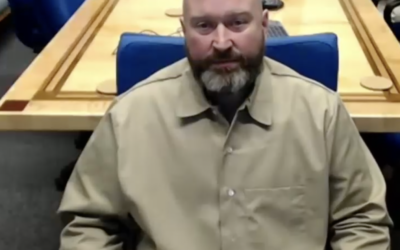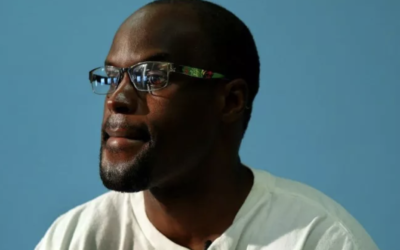The following speech was delivered at the Weusi Umoja Social at OSCI — August 22, 2018
Good evening. I hope everyone is enjoying their time tonight with their friends and family. As it was just mentioned, this year we chose to honor Rosa Parks. She is obviously a well-known American icon who had a pivotal role in the civil rights movement, so we felt it was important to highlight exactly how she carved an indelible mark in American history.
On December 1st, 1955, in downtown Montgomery, Alabama, Rosa Parks boarded a city bus, paid her fare, and took a seat in the first row of back seats that were reserved for blacks. As the bus continued its normal route, all the seats that had been reserved for white passengers filled up. When the bus driver noticed a few white passengers standing, he moved the “colored” sign behind Mrs. Parks and demanded she move. After she refused several times, he threatened to call the police and have her arrested. Unfazed by his attempt to intimidate her, she calmly and defiantly replied, “You may do that.”
Her arrest garnered the attention of the local NAACP, and three days later it was announced there would be a bus boycott where all blacks would abstain from using any city bus for as long as it took for them to be treated with the same level of courtesy afforded white patrons. This undertaking needed coordination by a capable leader, so a young preacher from Atlanta was brought in to lead the bus boycott. He would soon become known to the world as Dr. Martin Luther King, Jr.

The Montgomery bus boycott was made possible because the black community banded together, rode in carpools, and took black-operated cabs that charged the same rate as bus fare; the remaining forty-thousand commuters walked. This would last for three-hundred and eighty-one days, forcing the city to repeal its Jim Crow law requiring segregation on public buses. This precipitative event catalyzed a mass movement, again led by Dr. King, known as the Civil Rights Era. This movement shone an undeniable spotlight on the everyday injustices that afflicted blacks in their communities across the country. These relentless efforts culminated with the passage of landmark legislation in the Civil Rights Act of 1964, followed by the Voting Rights Act of ’65
Years later Mrs. Parks sat down to be interviewed by her biographer, and in it she told him, “People always say I didn’t give up my seat because I was tired, but that isn’t true . . . I was only tired of giving in.” Whether she knew it or not, when she defiantly stayed in her seat, she became the face and voice of countless black people across this country who were also tired of being denied seats at lunch counters, or the right to vote in local, state, and federal elections. In that defiant moment she represented every black person who was tired of being denied employment and educational opportunities, those tired of being relegated to second-class citizens in the only country they had ever known
For her courage and tenacity that led to legislation that would benefit not just black people but society as a whole, she became affectionately known as the Mother of the Freedom Movement. Notice the operative word in that title is “movement,” and here’s why: Mrs. Parks and Dr. King are icons not solely because of their individual heroism, but because of the masses of people who joined in their fight, which constituted a movement
When we traverse the annals of US history, it is readily apparent that anytime there has been revolutionary social change it’s been attributable to the people. As imperfect as they may have been in 1776, it was the people who rose up against a tyrannical king to proclaim their independence and defeated, at that time, the world’s greatest military to establish their national sovereignty. From 1861 to 1865, it was the people — an army in fact — who fought their neighbors to the south to put an end to America’s original sin, settling once and for all that the US economy would no longer be predicated on human bondage. In 1920, again, it was the people who joined forces with fearless women across this nation to help them secure their inherent right to the franchise. From 1955 through 1965, it was the people who hailed from every corner of this country to stand with Mrs. Parks and Dr. King to fight for equality for those it had been denied because they understood that, despite our differences, we are all citizens of the same country that we love, have fought for and died protecting; and therefore are entitled to the same fundamental rights. And finally, in 2008, it was the people who — led by the courage of their conviction, casting aside any bias or preconception — did what I thought would never happen in my lifetime: elected the first black president of the United States of America. This is the story of America! And because we are a work in progress, it will continue to be the people who will advance the American narrative so that its future looks less and less like its troubled past, and more and more like the ideals and principles we espouse.
This is why Rosa Parks sat, why Dr. King marched, why Barack Obama ran and why we should all feel a moral obligation to act; to act with kindness toward people who may not look like us, talk like us, or dress like us; to commit random acts of service for people who have nothing to offer us in return; to act with the keen understanding that the evolution of our society in general and the enhancement of race relations in particular are contingent on each and every one of us — and the manner in which we treat each other. Enjoy the rest of your evening. Thank you.
“I have learned over the years that when one’s mind is made up, this diminishes fear; knowing what must be done does away with fear.”— Rosa Parks






0 Comments